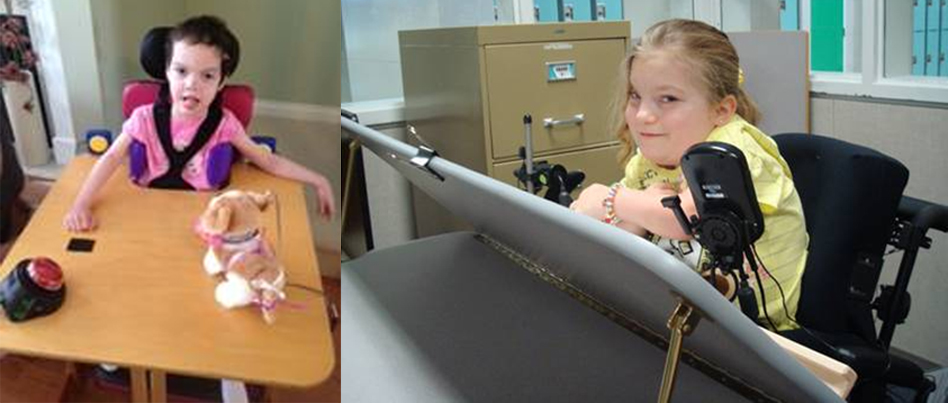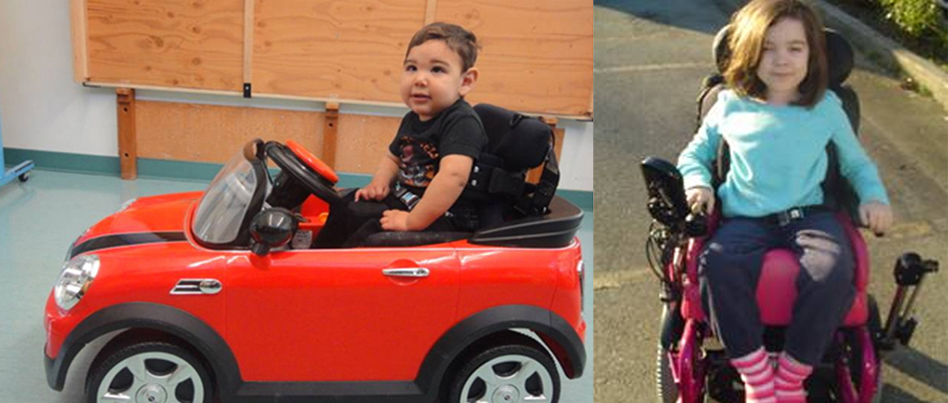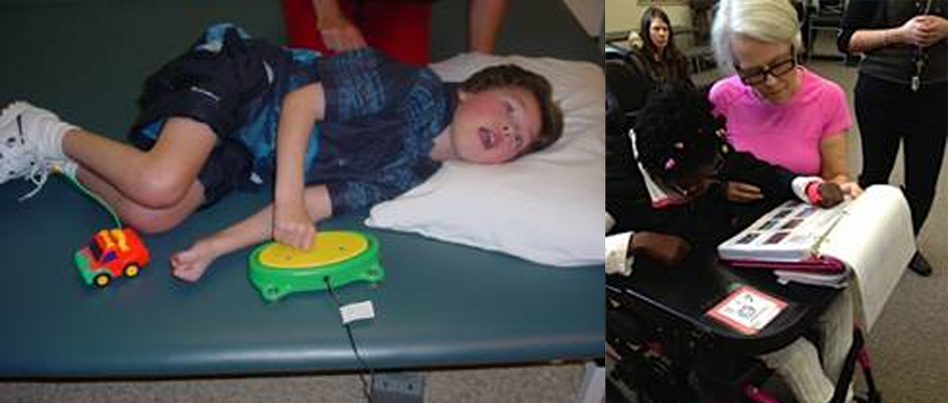Assistive Technology
Assistive Technology may be beneficial for children who:
- Have difficulty communicating effectively and efficiently through speech and/or writing.
- Have difficulty using their hands to explore, write, and play with toys.
- Have difficulty accessing and interacting with their environment through conventional means.
- Are unable to move around independently.
Research has shown that:
- There is no minimum age requirement for the introduction of an Augmentative/Alternative Communication (AAC) system.
- Use of a communication device can increase communicative interactions in young children who are non-speaking.
- The introduction of an AAC system will not prevent a child from using or developing his or her natural speech; in fact, AAC may facilitate the development of natural speech.
- Children younger than one year old can successfully learn to use switches to activate toys and other motivators.
- The use of a computer to play may help increase interactions with peers for children with severe disabilities.
- Using power mobility at a young age will not prevent children from developing motor skills.
- Preschool-aged children can successfully use power mobility devices.
- Power mobility can promote psycho-social development as well as mobility.


